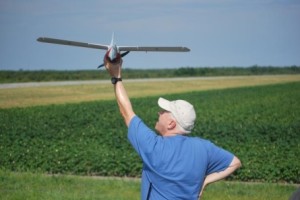
The proposal would also overturn a 2013 state budget amendment which prohibits the purchase or use of drones by state and local governments. Committee co-chair Rep. John Torbett, told reporters the proposal would bring legitimacy to commercial drone use and open up new business opportunities. “I hope the people that represent the citizens of North Carolina understand that there are remarkable job opportunities out there for growth,” he said. “This is a new market. This is a relatively innovative, fresh market with unknown applications at this time.”
Regulations in the draft bill would make it illegal to:
- Damage or disrupt any manned aircraft operations via drones;
- Possess or deploy a drone armed with any weapons;
- Photograph or conduct surveillance on any persons with a drone or publish drone-recorded photos without consent (unless the photos are recorded at “newsworthy events or events to which the public is invited”).
On the other hand, the bill would allow law enforcement agencies to:
- Use drones for the purposes of surveillance with a warrant;
- Deploy drones to stop potential terrorist attacks
- Curtail “imminent danger to life or serious damage to property;”
- Stop the escape of a suspect;
- Search for a missing person;
- Record public gatherings on public or private property.
These stipulations could result in the bill facing constitutional challenges since courts in the past have ruled that citizens do not have an expectation of privacy (including being photographed) in a public setting. Also, defining a member of the media or what is a “newsworthy event” could stray into press-freedom issues.
The bill also includes a licensing requirement and a mandate that requires the N.C. Aviation Division to create a special exam all drone operators will have to pass.
With the all of these proposals on the table, North Carolina joins a growing number of states attempting to regulate drone use both by private citizens and government agencies. Most recently, the states of Massachusetts, Pennsylvania, Louisiana, New Hampshire and Michigan have proposed a variety of drone-regulation measures in the last year.
Jason is a longstanding contributor to DroneLife with an avid interest in all things tech. He focuses on anti-drone technologies and the public safety sector; police, fire, and search and rescue.
Beginning his career as a journalist in 1996, Jason has since written and edited thousands of engaging news articles, blog posts, press releases and online content.
Email Jason
TWITTER:@JasonPReagan
Subscribe to DroneLife here.